The anti-sex beds return to the Olympic Games
The cardboard beds will once again be the protagonists in the Olympic Village of Paris 2024. The measure was born in Tokyo 2020 as an example of sustainability, but it went viral as an attempt to avoid sex. The open secret of sexual relationships among Olympians and the fear of the pandemic contributed to spreading the rumor. Additionally, it is expected that 300,000 condoms will be distributed in this edition.

The Olympic Games beds once again capture attention: sustainability or anti-sex?
With 79 days to go before the start of the Olympic Games in Paris 2024 - the global epicenter of sports from July 26 to August 11 - details are beginning to emerge about what will undoubtedly be the sports event of the year. The Olympic torch has already arrived in French territory, at the Vieux Port of Marseille, aboard the ship Belem, which set sail from Greece a few days ago. However, the curious beds where the athletes will sleep have caught the interest of many headlines.
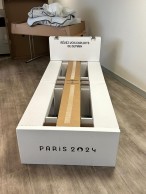
RECOMENDADO

How to wash your bike at a gas station without ruining it
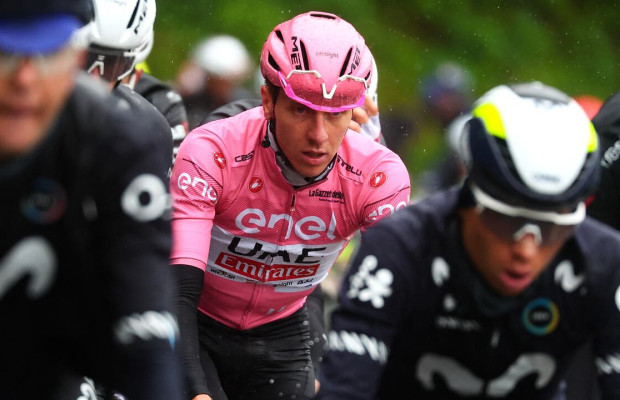
Tips for staying motivated to go out riding when cold, rain or night lurk

How to choose the right crankset and cassette: a guide to find the right ratio and extend the life of your bike
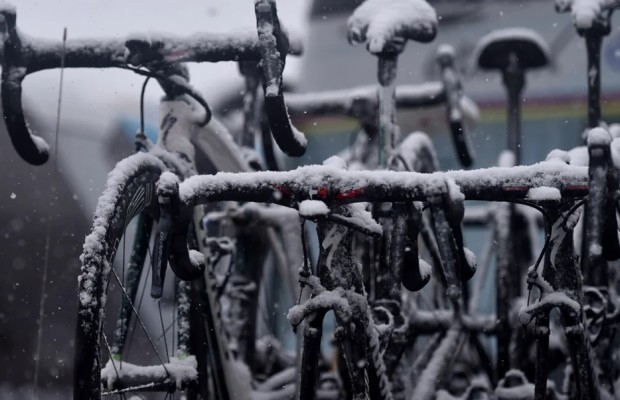
Can I go cycling with the flu or a cold?

He invented the idea of jumping over the planks, which earned him a World Championship against Van der Poel
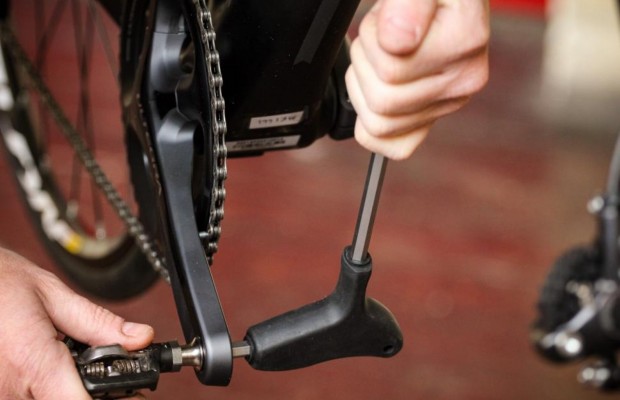
How to change the pedals of any bike in 5 steps
The Tokyo 2020 Olympic Games were marked by the pandemic. The coronavirus forced the Games to be postponed for a year and to adopt restrictive measures that affected athletes, workers, spectators, and anyone else involved in the competition.
At that time, there was much talk about the athletes' beds; the decision to make them out of cardboard was unprecedented in history. Rumors circulating about sexual relationships in the Olympic Village and the organization's fear of a massive contagion led to the belief that the goal was to furnish the rooms with beds that were sex-proof. However, the news about the cardboard beds was announced before the pandemic arrived.

The real reason for the beds is actually another: sustainability, as these materials were chosen to be recycled and turned into other products. Although they can break if someone jumps on them, it is difficult to think that the motive is strictly to avoid sex: they can support a weight of up to 200 kg and are "more resistant than wood or steel" according to Airweave, the company responsible for manufacturing the 18,000 beds for Tokyo 2020. Once the coronavirus broke out, the beds could have inadvertently become another deterrent to physical contact.
On the other hand, around 300,000 condoms will be distributed in Paris 2024 among the 14,250 athletes from the 200 delegations attending the Olympic and Paralympic Games - a measure that was implemented in Seoul 1988 and reached its peak in Rio 2016 with no less than 450,000 units. Condoms are part of the 'love kit', which also includes gels, lubricants, and other products.
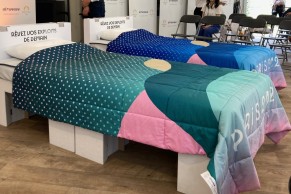
The cardboard beds are also made with a mattress - made of resin fibers - divided into three pieces, each with a different density. Depending on their height and weight, each athlete must combine them in a specific way to achieve proper rest. In the search for the best rest, alcohol has also been banned.

The Olympic Village in Paris, located north of the French capital on the banks of the River Seine, is already completed. In total, 82 buildings have been erected to accommodate 3,000 apartments and 7,200 rooms; it consists of five residential areas that will have - within each building - cleaning services, laundry, and multi-religious centers.
Beyond the residential area, there will be restaurants open 24 hours a day - serving up to 60,000 meals daily - training facilities, and a medical clinic. After the Games, the entire area will be transformed into 2,500 new homes, a student residence, a hotel, and several parks, among other things.
The schedule for the cycling events will start on July 27 with the individual time trial and end on August 11 with the last track event.